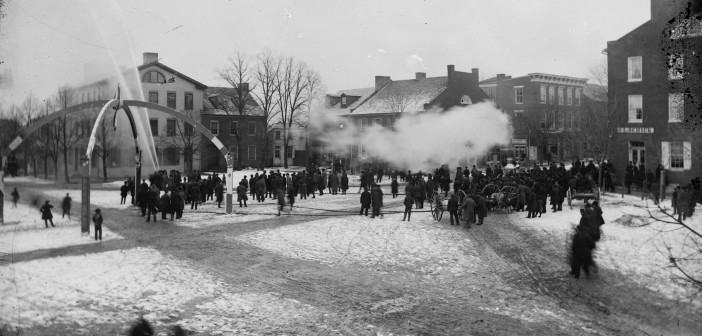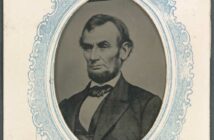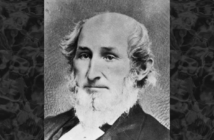Entertaining on even a minor level requires an abundance of hard labor, innovative creativity, and detailed planning. Could you imagine how you would tackle entertaining the president of the United States? How about during a massive Civil War that just four months earlier crossed your doorstep? And while you were four months pregnant? Oh, and let’s add 38 other dignitaries and guests to that event order.
That is what David and Catherine “Jennie” Wills faced on Nov. 18, 1863.
David Wills was a prominent attorney in town before the Battle of Gettysburg. On July 4, 1863 and beyond he became one of the most dedicated and influential advocates for those affected by the battle’s unfathomable wreckage.
On July 1, 1863 David and some fellow citizens watched the horrific fighting from his rooftop—after that his life was never the same.
During the battle, he sheltered dozens of wounded in his home and helped visitors who came seeking the bodies of their loved ones. Jennie, who was with child at the time, cared for wounded soldiers including Gen. Winfield Scott Hancock who was severely wounded in Pickett’s Charge. David’s law office, located in their home, became the nucleus of the town’s recovery process. Supplies for the U.S. Sanitary and Commissions were dropped off there as well as mail from families desperate for help to recover loved ones. Their home has been compared to a 19th-century FEMA.
In the battle’s aftermath, David not only used his legal skills to try and get local residents reimbursements for their war damages but also fought for the soldiers who lost their lives in his town.
David was designated by Pennsylvania Gov. Andrew Curtin to work as a state agent to organize the proper burial of Pennsylvania’s dead. David hosted a meeting of state agents in his home, and the idea of the Soldiers’ National Cemetery was born. Gov. Curtin gave David the authority to carry out the logistics, and David purchased 17 acres of land on Cemetery Hill in late August 1863. He also engaged noted landscape architect William Saunders to design the cemetery.
With plans well underway, David sent a letter to Gov. Curtin asking to hold “appropriate ceremonies” to consecrate the National Cemetery. Following approval, he issued invitations to dignitaries and speakers including President Lincoln stating, “It is desired that, after the Oration (given by Edward Everett), you, as chief executive of the nation, formally set apart these grounds to their sacred use by a few appropriate remarks.”
That autumn David was incredibly busy overseeing the reburials and organizing the dedication ceremony, which was to be held on Nov. 19, 1863. He also assisted with creating the dedication day program, which included a military procession, prayer, invocation, and speeches. Like any good event planner, no detail was overlooked. He even prearranged the color and size of the rosettes worn by state marshals.
Jennie was busy preparing for the eve of the ceremony, in addition to caring for her children. With the help of her small staff, she prepared bedrooms and a dinner feast for 38 prestigious guests, including Abraham Lincoln, Edward Everett, and the French minister to Washington, among others.
After dinner, guests gathered in the parlor and talked and played with the Wills’ children until the president and other guests retired to their rooms for the evening. It is said that the children and grandchildren fondly remember hearing endless stories about Lincoln’s visit to their house. During his short and only visit to Gettysburg, he spent the most amount of time at the Wills’ residence.
Only the president and Everett had the privilege of a private room—all other guests were asked to share sleeping space. It was in this room that Lincoln put the finishing touches on his dedication day speech, which became one of the most famous speeches in American history.
Visitors to Gettysburg can now tour the David Wills House and see the bedroom where Lincoln worked on his speech and slept. Guests also can learn more about the Wills and their admirable entertaining and patriotic accomplishments during and after the Battle of Gettysburg. Visit www.gettysburgfoundation.org for more information.




